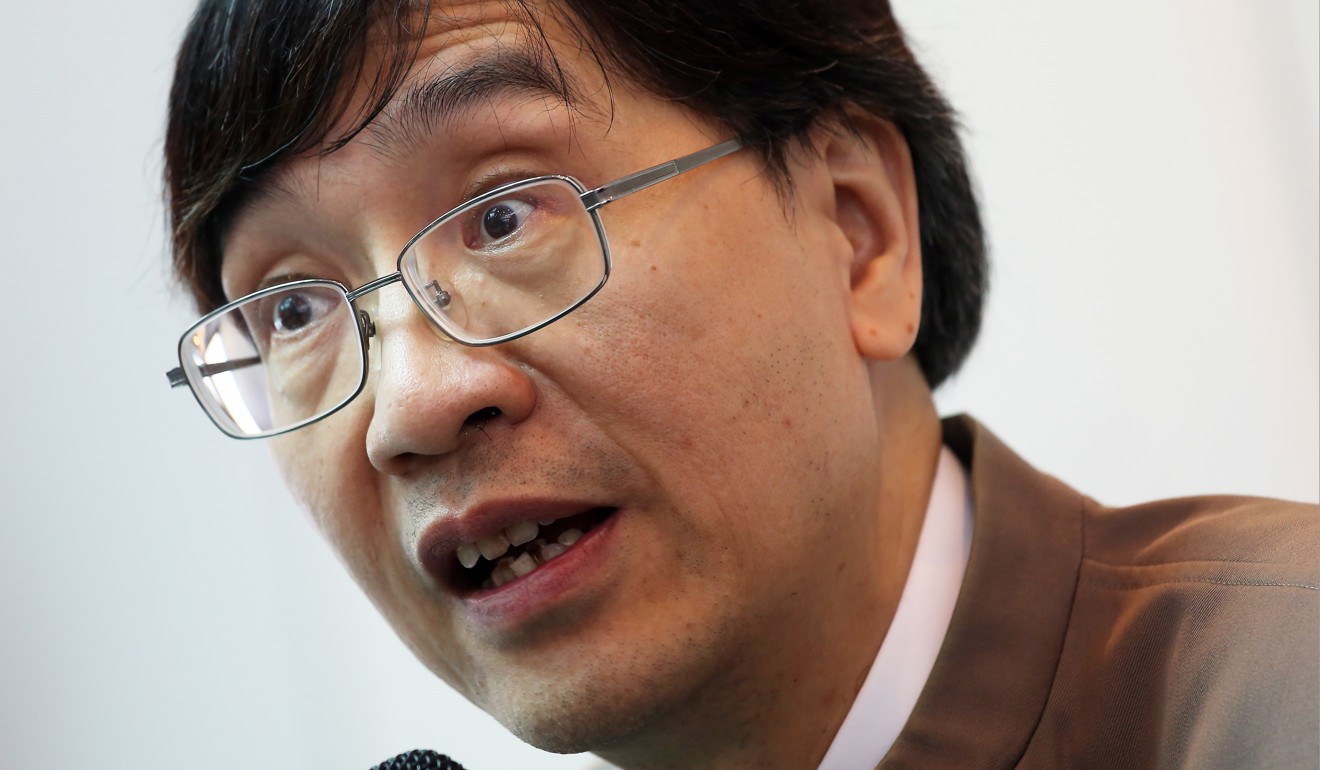
Drug guidelines ‘useless’ without tracking how Hong Kong family doctors prescribe antibiotics
Microbiologist warns that efforts to combat superbug spread will achieve little if government does not audit private doctors’ antibiotic prescriptions and give them feedback
Guidelines for family doctors on the proper use of antibiotics would be “totally useless” if there is no way to monitor their prescriptions, a leading microbiologist has warned a day after the Hong Kong government took further action to reduce overuse of such medication.
Professor Yuen Kwok-yung, who chairs a government expert panel on antimicrobial resistance, said on Tuesday there was a lack of data on how private doctors prescribe antibiotics to treat infections.
“It’s necessary to monitor such data, how much we’re using, whether we’re using more or less.
“[Otherwise], guidelines would be totally useless in the long run if we don’t audit antibiotic use and give feedback to doctors,” Yuen said on a radio programme.

Overuse of antibiotics is a grave threat globally. It has led to infections resistant to the medication, known as superbugs, resulting in higher rates of treatment failure and death.
Hong Kong has seen a five-fold increase since 2007 in cases of one particular drug-resistant superbug spreading in the community.
In July, the city’s health authorities released a wide-ranging five-year plan to stop the spread of superbugs. Among other things, it asked private doctors to report antibiotic prescriptions through the government’s electronic health record system and announced that from 2019, farmers would be banned from giving antibiotics to animals bred for food, unless the medication was prescribed by a vet.
Hong Kong doctors asked to report antibiotics use amid global superbug crisis
On Monday, the Centre for Health Protection issued non-mandatory guidelines for private doctors on prescribing antibiotics, after a study found they were more likely than those in the public sector to use antibiotics to treat coughs.
Doctors have also been known to mistakenly prescribe the antibacterial medication for illnesses caused by viruses.
Another government survey found 49 per cent of people had taken antibiotics in the past 12 months, a steep increase from 35 per cent in 2011.
The guidelines, part of the Antibiotic Stewardship Programme in Primary Care, suggest the type of antibiotics, dosage and prescription duration for common problems – inflammation of the throat, acute bladder inflammation in women, and simple skin and soft tissue infections.
Hong Kong family doctors get drug guidelines in war on superbugs
Dr Leung Chi-chiu, head of the centre’s public health services branch, said some private clinics and hospital groups, comprising about 400 doctors, did keep data on antibiotic prescriptions and this already gave experts some insight into how the medication was used in the primary health care sector.
But he stressed that doctors should not be held solely responsible for the growing superbug threat.
“The onus should not be solely on the medical sector … The high usage of antibiotics in farming is still a source of drug resistance. We have to work on both,” Leung said, adding that antibiotics used in agriculture and animal-rearing would be passed to humans through the food chain.
Hong Kong farmers give antibiotics to healthy chickens ... and raise supervision concerns
Yuen said the government should do more to monitor how private doctors used antibiotics. Apart from asking them to report their prescriptions, patients should have the option of taking photos of medication packets and sending them to health authorities.
In Britain for instance, the government would notify doctors if they prescribe antibiotics more frequently than their peers. This feedback was valuable for medical professionals, he said.
Hong Kong urged to tackle superbug problem by making hospitals disclose infection and drug data
Dr Ken Ng Ho-leung, a consultant on antimicrobial resistance at the centre, admitted that monitoring doctors would be tough. But so far there was no evidence of misuse of antibiotics in the city, he said.

